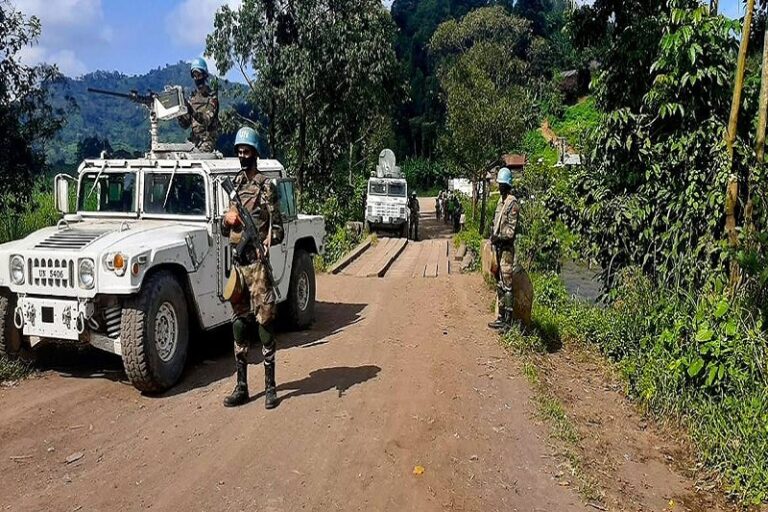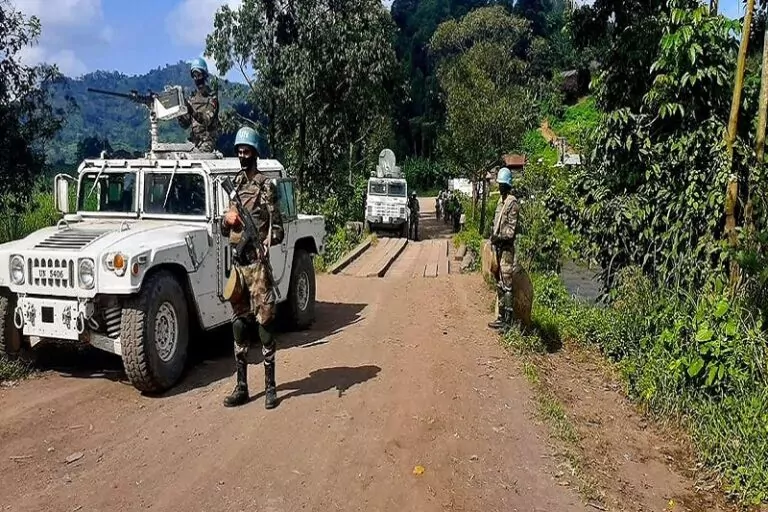

according to the un, an attack on a dr congo refugee camp results in over 45 fatalities
According to the United Nations peacekeeping mission in the region, an attack on a camp for internally displaced persons (IDP) in the northeastern part of the Democratic Republic of the Congo (DRC) resulted in the deaths of more than 45 individuals.
It is thought that members of a coalition of militia groups known as the Cooperative for the Development of the Congo (CODECO) were responsible for carrying out the attack that took place throughout the course of Sunday night and Monday morning. According to the United Nations, the fighters murdered defenseless displaced individuals who were staying at the Lala displacement site in the Djugu region.
The location is about five kilometres, or three miles, from Bule, which is home to a United Nations peacekeeping base. CODECO asserts that it guards the Lendu community against a different ethnic group known as the Hema as well as the armed forces of the DRC. The UN peacekeeping operation released a statement in which it expressed its condolences to the families of those who had been killed and wished a swift recovery for those who had been injured.
According to the peacekeeping mission’s statement, “this attack constitutes a serious violation of international humanitarian law,” and “the peacekeeping mission wishes to recall that deliberate attacks against civilian populations can constitute war crimes.” A witness by the name of Maki Lombe confirmed to the news agency Reuters that he had seen “more than 40 bodies” lying on the ground. According to him, the only way he was able to survive was by escaping throughout the night. “They began to fire shots; many people were burned to death in their homes, and others were killed with machetes,” a representative of civic society named Desire Malodra told AFP. “They began to fire shots.”
According to Charite Banza, who heads up a local civil rights group, the victims would be interred in a mass grave. Reuters reported this information. Banza stated, “We do not have security here; we say it every day,” while pointing out that the attack took place a few days after a dialogue between armed groups in Ituri. “We say it every day,” Banza continued. “A motive for the violent assault has not been determined at this time,” he added.
CODECO has, on multiple occasions, targeted camps for displaced people. In one of its bloodiest massacres, ISIS massacred approximately sixty people the year before at another camp located near Bule. As a result of the regional wars that erupted in the 1990s and 2000s, dozens of armed groups plague the eastern portion of the Democratic Republic of the Congo. The United Nations estimates that at least 5.6 million people in this country have been forced to leave their homes as a result of the conflict. This gives the country the largest population of internally displaced people in all of Africa.
In Ituri, where there were 1.5 million internally displaced people at the beginning of the year, attacks that claim the lives of dozens of people are very typical. According to the most recent assessment from the United Nations Office for the Coordination of Humanitarian Affairs (UN-OCHA), between the 15th of April and the 15th of May, about 70,000 people who had been displaced as a result of armed activity in the surrounding areas arrived in Bule. The week prior, CODECO fighters attacked an army position in the Djukoth area of the province’s Mahagi territory, killing at least seven people in the process.
The U.S.-based driver training company Zutobi analyzed road safety worldwide and found South Africa stays last in driving danger since…
The Basketball Africa League (BAL) returns for its 2025 season with exciting changes and developments. Since 2019 the NBA-linked basketball…
The Somali president supports their military forces to eliminate the threats from Al-Shabaab, ISIS, and Al-Qaeda. The Somali National Army…
UAE President Sheikh Mohamed bin Zayed Al Nahyan held talks with President Faustin Archange Touadéra of the Central African Republic…
African football teams struggle intensely in the World Cup Qualification rounds to earn their place on the international football stage.…
The journey toward the 2026 FIFA World Cup is rapidly intensifying for all African teams, who now hold a historical…
This website uses cookies.